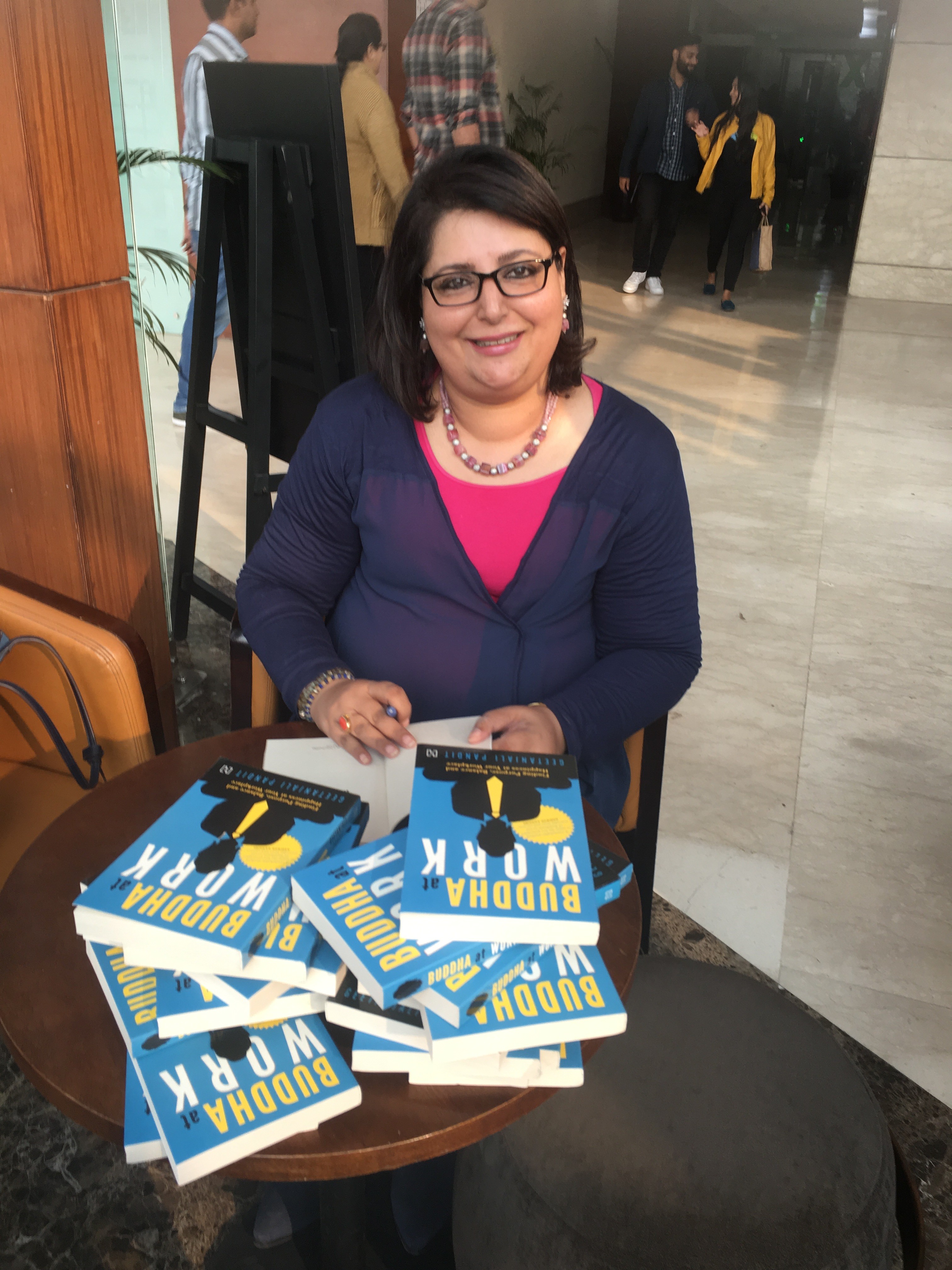A 2016 survey says that 46 per cent of the workforce in Indian organisations suffers from some form or the other of stress. By 2025, more than half of the Indian population—57 per cent to be exact—will be diabetic. According to a 2017 WHO study nearly 57 million of Indians suffer from depression. And this does not even include those suffering from anxiety.
There will always be imperfect situations, imperfect organisations, certainly imperfect people—be they bosses, colleagues, peers or team members. Even clients and vendors. Imperfect conditions create stress, anxiety, elevate our BP, most certainly induce many problems of body and mind. There is no way of doing away with our imperfect reality.
If calmness, poise and happiness are to be found, they must emerge from this imperfect reality. Not from a job change. Not from wishing away the boss. Not from a transition from being an employee to being an entrepreneur. Else…
Almost all of us have very little control over situations and circumstances. Individual will appears weak and even insubstantial when faced with the overwhelming odds of ‘real life’. My personal coach says that the one point of control is actually our mind. Here is where we start to make the difference. In keeping with the laws of nature, what is within starts to impact the outside.
Mumbo-jumbo? Impractical? Well, certainly not. When the Mayo Clinic starts to recommend so much from this coach’s teachings, you know that science is beginning to second the teachings, the principles of the Buddha.
He may have lived and taught some 2500-2700 years ago, yet the need for his practical and sane advice has never been as felt, never before been as needed as in the 21st century. Today it appears, that almost each element of his teachings has been validated by neurology and the study of the human brain.
Buddha At Work (Hachette India) was born out of my own professional struggles, my observation of the truly successful folks and a 20-year study and understanding of the teachings of the Buddha.
As I transformed my professional failures to success, as I changed financial hardship to affluence, as I changed from being angry, bitter and frustrated to a person of greater calm, better relations and much happiness, I knew I had something of great value with me and the only way to justify this was to share what I had, whatever I had understood and applied, with others. Hence, Buddha At Work.
As I starting building success in my life, I became a credible Human Resource professional and then the CHRO for some of India’s top companies, I certainly had the ring side view of it all—office politics, the long working hours, office politics, demands of employees, expectations of management and office politics! The tremendous stress that so many people were experiencing. Rising anxiety, growing negativity and the expectation that someone—a boss, HR, even the CEO, just someone else would do something about the situation and make it positive instead of negative. The economy did not help in its downturn in 2008 and the fact it didn’t really go back to its pre-2008 levels.
My journey began at life’s deepest ebb—a nadir. I had lost my lovely, loving mother to cancer even before I turned 30. While still in my teens, my brilliant father, a top bureaucrat and a cop with spotless scruples developed bipolar disorder. My sole sibling, my elder brother was already showing signs of a personality disorder that would later on overtake his life and health.
I had taken very unwise and downright stupid life decisions. Not done anything very much with my degrees in law (from Delhi University) and from XLRI. And so, I found myself unemployed (despite XLRI!), financially dependent on my dad, and blaming him majorly for all the problems I had faced and was facing.
I was so very very bitter and so enormously frustrated that nothing was working out professionally. And even more importantly, I was feeling hopeless. I couldn’t even begin to see a future for myself.
I may have been fated to continue this way but for a life altering interaction that introduced me to the teachings of the Buddha. This was a watershed moment. The Buddha’s teachings became the rope that helped me to climb out of the precipice. My life turned around when I started applying certain principles, when I changed my attitude and my approach, when I started understanding that I alone was creating my life’s experiences. I was no one’s victim but mine.
No gallant knight, no god, no angel would come dashing to my rescue. I needed to rescue myself. And with a better understanding of how life really works. The principles that effect and impact our life experiences. A deeper understanding that we truly create the life we lead. The good, the bad and the ugly.
Life is not something you and I can outsource to anyone else—not to our parents, not to our siblings, certainly not to a spouse or a child, not to life’s circumstances. You and I have to move from the hand we have been dealt to winning with what we have, from where we are. How should we do this? And how should we do this in a way that is practical, reasonably quick and quickly effective?
If you are anything like me, you will lose interest if any exercise, any technique does not check these boxes. It must be practical, not consume too much time, it must show results a.s.a.p. Buddha At Work(Hachette India) was written as a relevant, practical and easy to do reckoner to transform its readers professional life, by transforming their inner self.
Since the book falls into the very unique genre of ‘Business Inspiration’, it talks a unique story. One that reads like a novel set in a modern-day corporation. With glimpses from the life and the gritty reality of the man that taught millions the way to transformation—the life story of the Buddha. Followed by bite-sized exercises and techniques that are powerful.
It features real life experiences from some of India’s top leaders—Rina Dhaka, the renowned designer, Dr KK Aggarwal, Padma Shri and then President of the Indian Medical Association, Vineet Nayyar, former CEO of HCL Technologies, Vikram Oberoi, managing director and CEO of EIH Ltd, Ambika Pillai, the celebrity make-up artist… Many who are not yet in the public eye shared their experiences as well.
As you go through the excerpts from Buddha At Work on Thrive Global India, over the next month, each week will help you look at how each day at your workplace can become one of the most engaging and fulfilling areas in your lives.
All this becomes possible with very practical ways of training our brain. Developing a new approach. Within the book you will find easy ways of developing mindfulness, understand how a seven-minute meditation a day is your transformational tool, the practise of deliberate gratitude in easy strokes to create the happiness habit.
(Excerpted with permission of Hachette India from Buddha at Work: Finding Balance, Purpose and Happiness at Your Workplace by Geetanjali Pandit)


